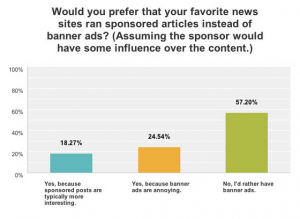Upsides To Google Labeling Positive Fake Reviews On Maps

Google Maps has released a set of rules that call out businesses for creating and posting positive false reviews of themselves or offering incentives to others to give the business rave reviews. Not only will the fake reviews disappear, but businesses will face penalties for using them to begin with.
“Reviews and ratings can help consumers choose a business for their needs,” the company explained in a post. “That’s why we take fake and/or incentivized reviews and ratings on businesses very seriously.”
Google outlines the rules and penalties on its support site. Among the most severe and damaging penalties to the business is a label placed on its listing page that informs visitors that the business has engaged with fake reviews in the past.
Two other penalties include the business profile being unable to receive new reviews or ratings, and Google un-publishing existing reviews or ratings for a “set period of time” An appeals form has been made available for businesses.
Google Maps is being used for much more than driving directions. It can identify foot traffic through a store at any time or day. Much like Yelp or TripAdvisor, it has become a crowdsourced review app to determine what a destination offers. It also lets consumers book a table like OpenTable.
Darcy Bickham, senior content marketing manager at SOCi, said fake reviews have become a significant concern. The crackdown means businesses can no longer rely on questionable reputation tactics, reinforcing the need for transparency and authenticity in digital marketing strategies.
“A significant concern is the potential for false positives, where genuine businesses could be unfairly penalized,” Bickham said. “Competitors may also exploit this by flooding rivals with fake positive reviews, complicating the review process even further.”
Bickham encouraged businesses to monitor and report suspicious activity, but many remain skeptical of Google’s appeals process, which is often slow and difficult to navigate. He explained how some businesses have even turned to shady reputation management services for help, further complicating the problem.
Positive fake reviews are also an issue in the UK. Mike Blumenthal, Near Media co-founder, earlier this month pointed out that suspected review abuse in the U.K. can lead to a 30 day review ban.
“To our knowledge this is the first such Scarlet Letter-style public notice that Google has attached to business profiles in connection with potential review fraud, Near Media co-founder Greg Sterling wrote in a post.
He explained how Yelp has for years posted “Consumer Alerts” on business profiles when they’re caught violating the rules, such as paying for reviews. Algorithm flag the profile without human investigation.
“This could result in false positives but the suspension and shame badging can be can be appealed,” he wrote, noting that fraudsters should be held accountable. Even though this is the UK, he wrote, it may be partly motivated by the EU’s DSA, which imposes stricter content moderation requirements on large platforms.
(5)







